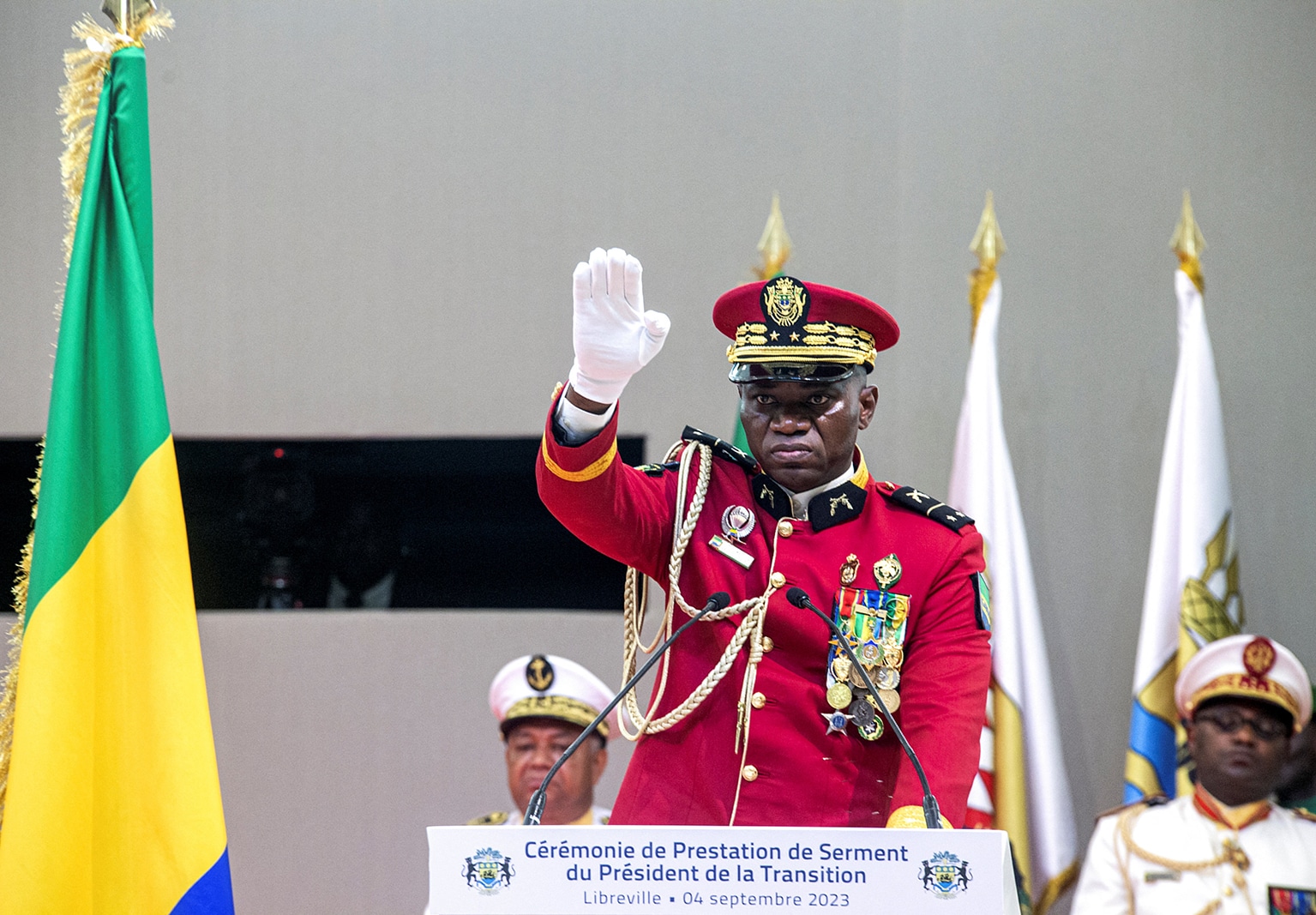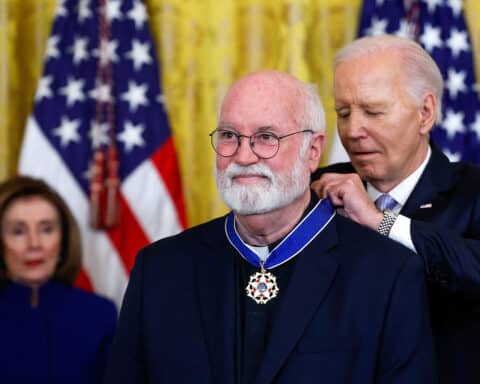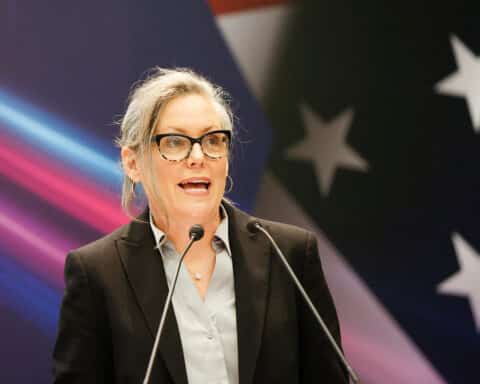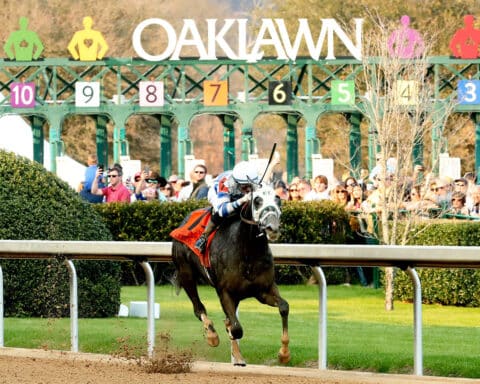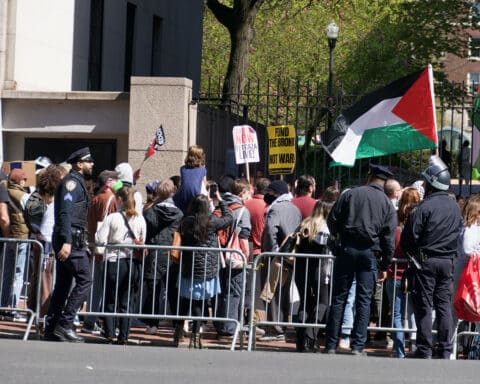(OSV News) — Two weeks after the military seized power in Gabon, a Catholic priest there said ordinary people feel more secure and hopeful, even as some analysts warn of a “contagious coup pandemic” in the former French colonies in West and Central Africa.
On Sept. 4, Gen. Brice Oligui Nguema was sworn in as the transition president for the tiny central African country.
Nguema seized power Aug. 30 after overthrowing the incumbent president, Ali Bongo Ondimba, moments after an announcement that he had been reelected. The bloodless overthrow drew wide condemnations from the international community.
The Catholic Church in Gabon
The Catholic Church took note of the change, while observing with caution the evolution of the situation, according to Father Serge-Patrick Mabickassa, coordinator of the Gabon bishops’ Commission for Social Communication and Culture.
He stressed that “this takeover took place without bloodshed or other forms of violence. This act of the defense and security forces was and remains welcomed by the population,” Father Mabickassa told OSV News through social media messaging. “It should be noted that this act of bravery and high responsibility on the part of the military brings back a feeling of hope and security in the public opinion.”
According to the priest, during consultations with religious leaders which Nguema had initiated, Archbishop Jean Patrick Iba-Ba of Libreville had stressed to the authorities the sacredness of life and respect for human dignity.
Archbishop Iba-Ba, Bishop Mathieu Madega Lebouankehan of Mouila and Msgr. Ruffin Ngoubou, the vicar general of the Archdiocese of Libreville, attended Nguema’s swearing-in, alongside other religious leaders, heads of diplomatic missions and other dignitaries.
The former president’s prime minister and vice president attended the ceremony, during which the coup leaders were wildly cheered by supporters. Bongo Ondimba, who had urged the international community to make some noise for him, had remained under house arrest until Sept. 6, when the military freed him on medical grounds.
“In faith, hope and charity, the church follows with keen attention the evolution of the situation, while hoping that all the active forces of the nation will show wisdom and moderation for the best interests of the nation,” said Father Mabickassa.
Change of power for the Christian nation
Nguema’s rise to power ended a 55-year reign of the Bongo Ondimba’s family in the majority Christian and Catholic country of more than 2.3 million people. Omar Bongo Ondima, the country’s second president ruled for more than 40 years, from 1967 to 2009. When he died, his son Ali took over and ruled for 14 years, from 2009 to 2023.
The coup in Gabon is the eighth since 2020 in countries in the West and Central Africa and Sahel regions. On July 28, Abdourahamane Tchiani, the general commander of the presidential guard and a former U.N. peacekeeper, proclaimed himself the leader of a new military junta in Niger, after seizing power and detaining President Mohamed Bazoum. Recently, similar coups have occurred in Mali, Guinea and Burkina Faso.
The Catholic Church in Gabon has not issued an official statement on the coup, but African bishops — under the Symposium of Episcopal Conferences in Africa and Madagascar — said Gabon’s recent coup is just one in a series that have marked African history since the 1960s.
In a Sept. 7 statement signed by Cardinal Fridolin Besungu Ambongo of Kinshasa, the bishops observed that during the post-independence period (1960s to 1980s), coups d’etat were part of a dynamic of power conquest with the aim of establishing dynasties.
“Those carried out in the Sahel countries (Mali, Burkina, Niger) and in Gabon,” it said, “seem to have something in common … according to the proponents, their aim is to put an end to the system of predation and widespread corruption instituted by deposed regimes under the guise of a democracy supposedly meant to bring prosperity to African countries.”
Church calls for justice for the poor
According to the bishops, Africa has the potential to achieve social and economic development with its mineral wealth, but the reality is that the continent faces endemic poverty, the causes of which are to be found in the system of economic colonialism.
“This raises the question whether these coup d’état are part of a new continental and global geopolitical order,” said Cardinal Ambongo in the statement, which recommended “constructive dialogue,” “mediation” and “reconciliation” to foster “understanding” and “healing” of the people.
According to Father Innocent Halerimana Maganya, the director of the Institute for Interreligious Dialogue and Islamic Studies at Tangaza University College, the coups are a setback of the democratic process that was started in 1990 in La Baule, France, at the Franco-African summit where the late French President Francois Mitterrand announced a symbolic reduction of debt repayments to France by four African countries.
Mitterrand hosted African leaders in a summit that resulted in a wave of multiparty democratic systems that also ended the coups.
“Thirty years on, has that model failed? What are the lessons and where are we going as Africa?” asked Father Maganya, a doctoral candidate in security and sustainable peace.
He said the return of the coups of past decades indicated that something “was wrong” with the political systems. He feared that democratically elected leaders in the countries did not work for the interest of the people, giving room for the militaries’ comeback.
The coups, according to the priest, told of the people’s aspirations, since wild celebrations had greeted the juntas’ arrival in the streets of cities and towns in Gabon and Niger.
“(There is) hope that the military camps will restore power to the people, but obviously, there is a risk of contagious (spread). People are talking about the ‘pandemic of coups’ and why is this happening in the former French colonies is the question,” said Father Maganya.
In West Africa, Catholic bishops have been warning against any military intervention in Niger, fearing that sending troops to the country would plunge the whole region into chaos.

